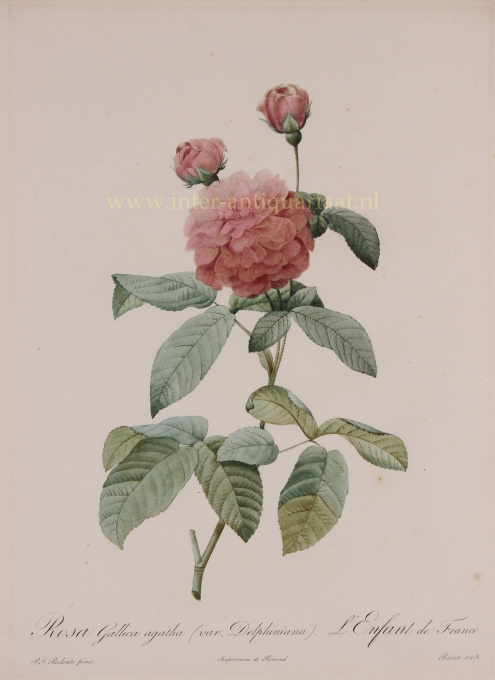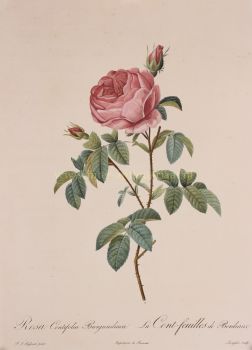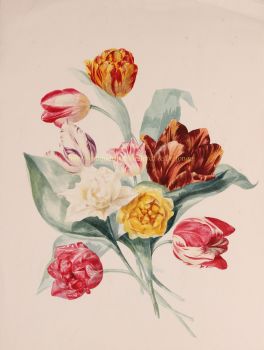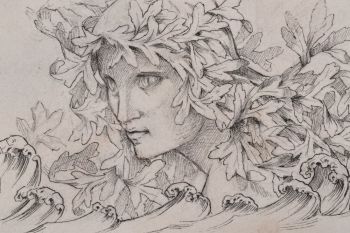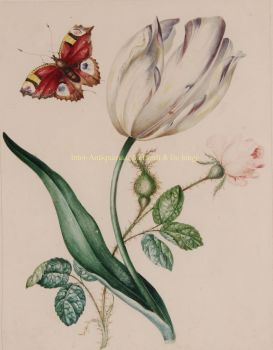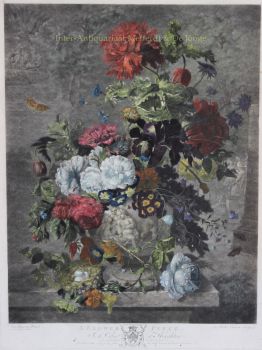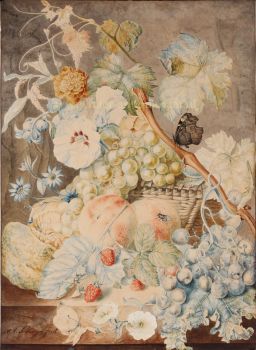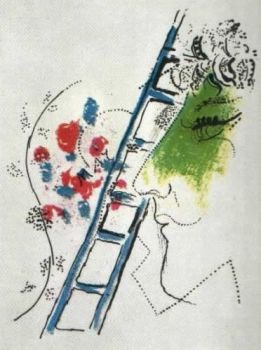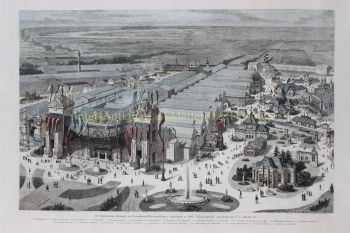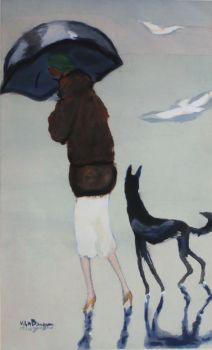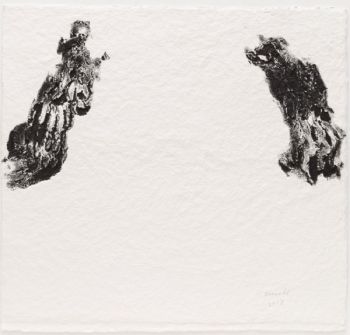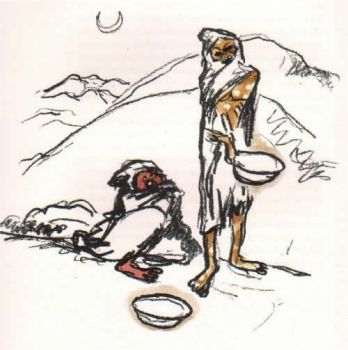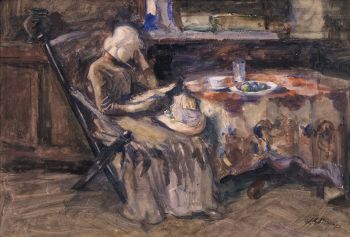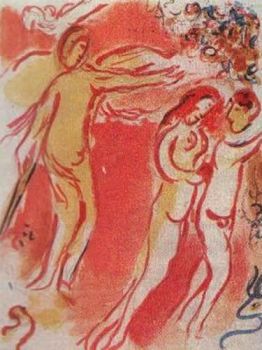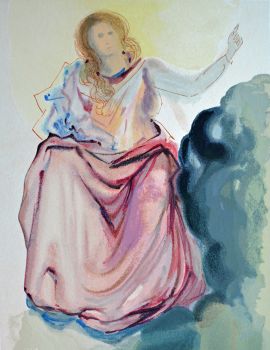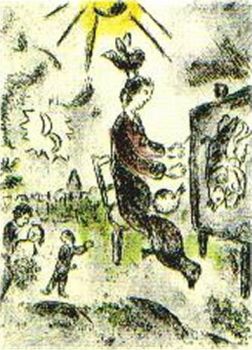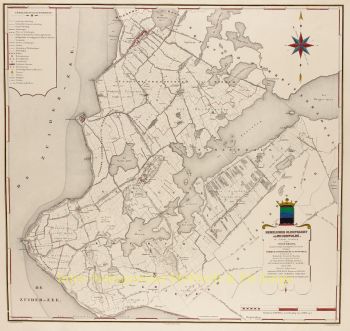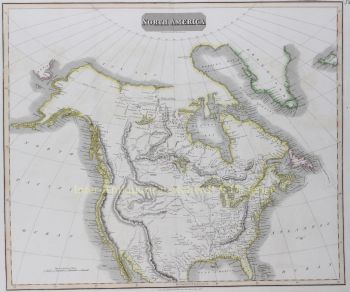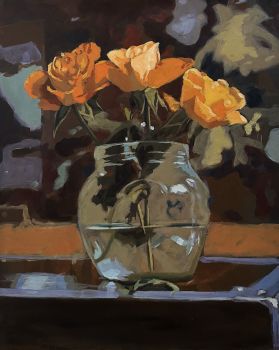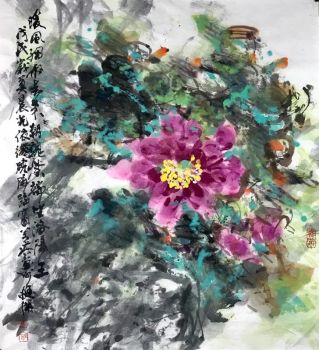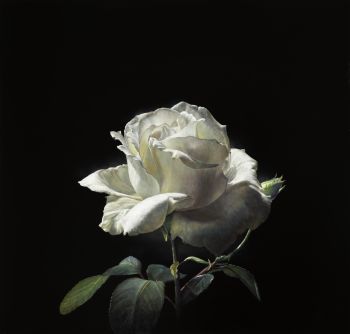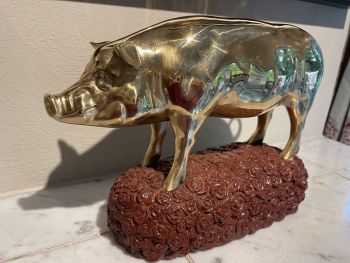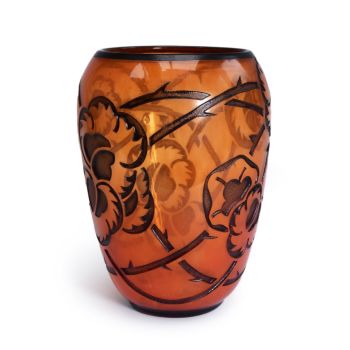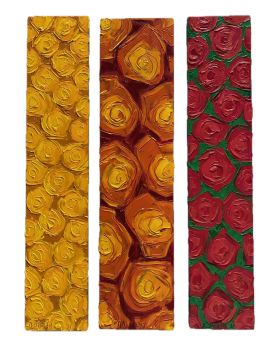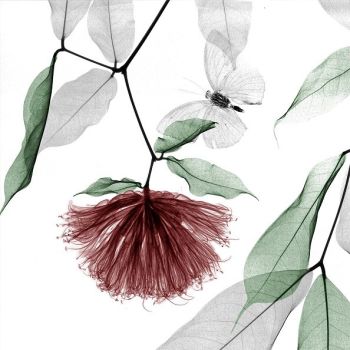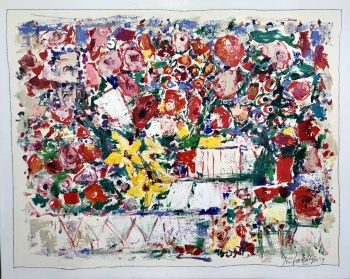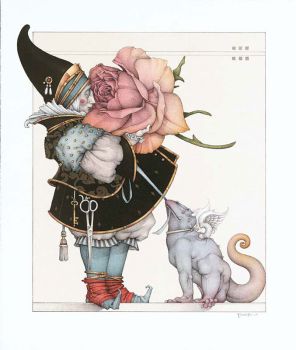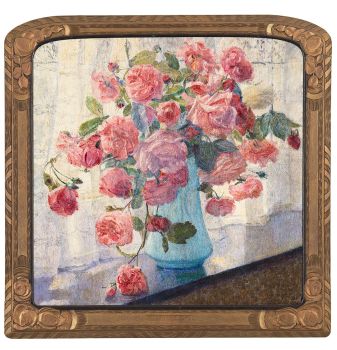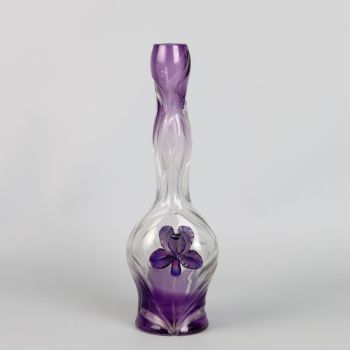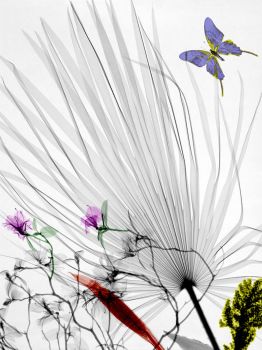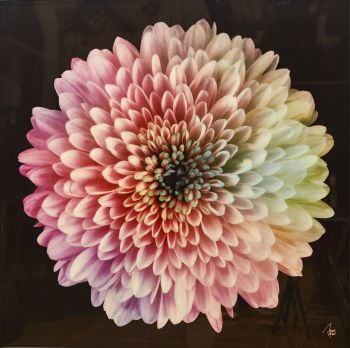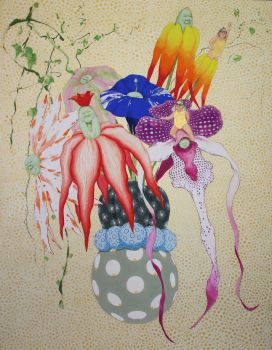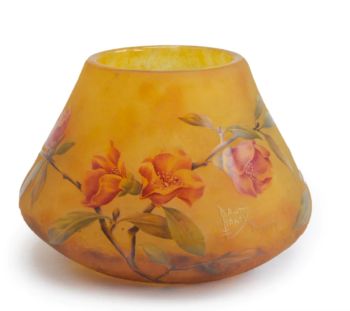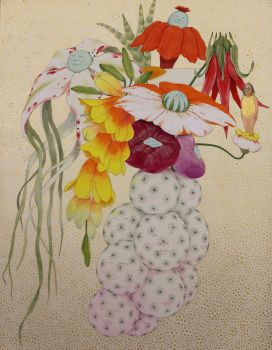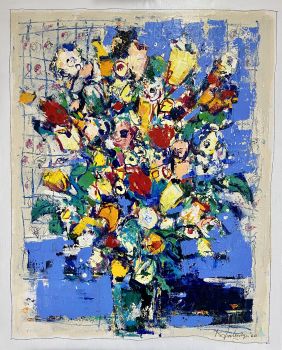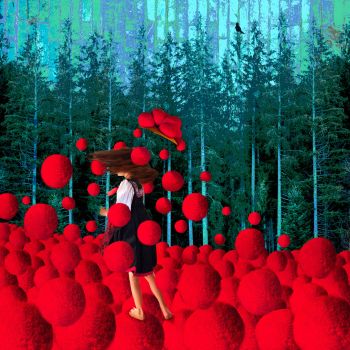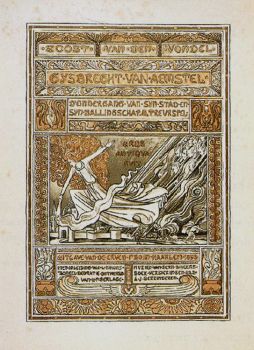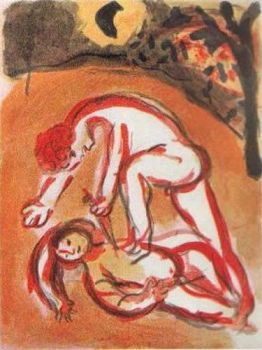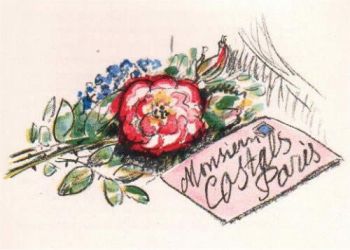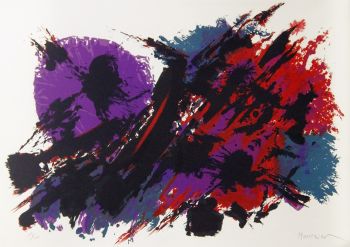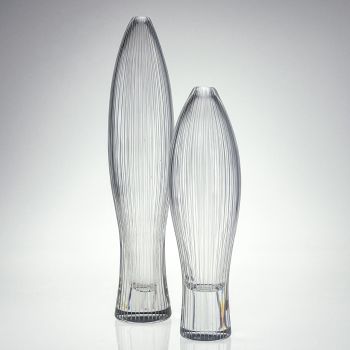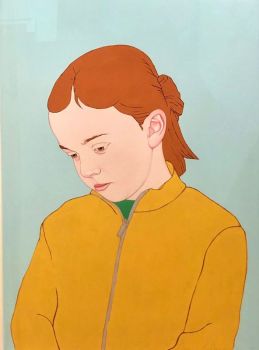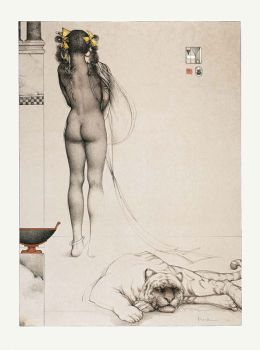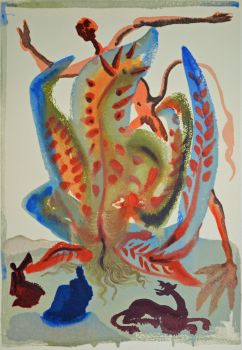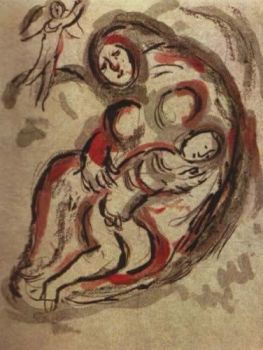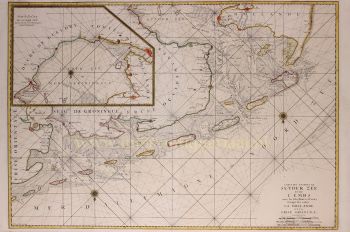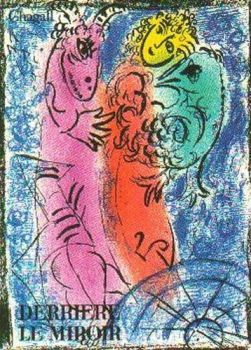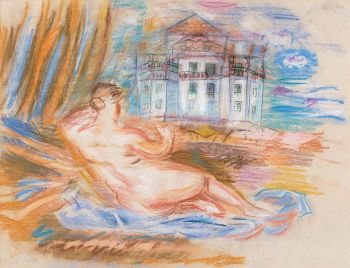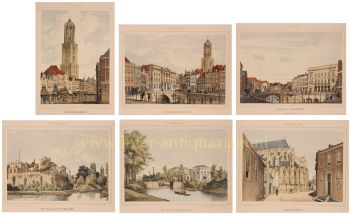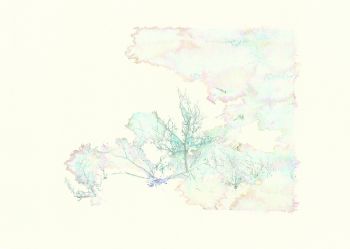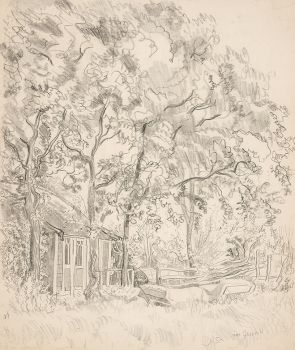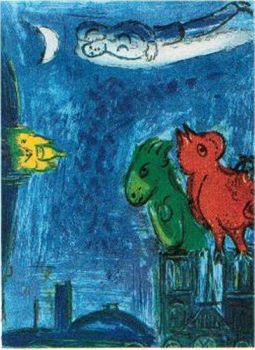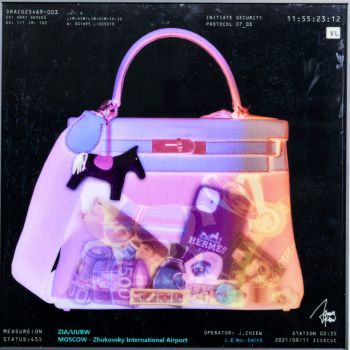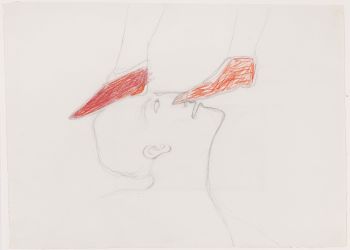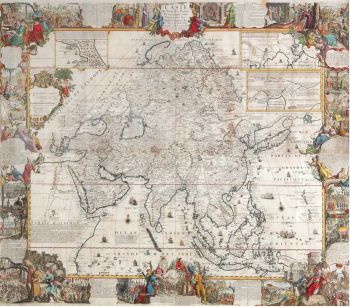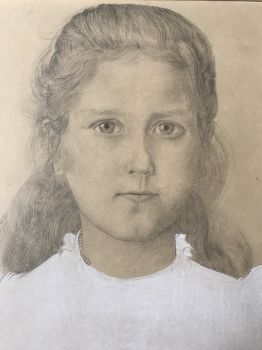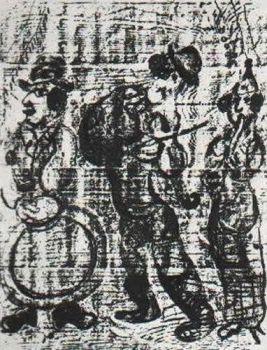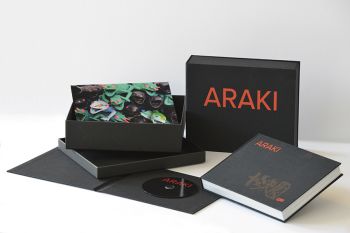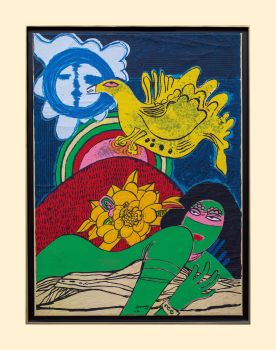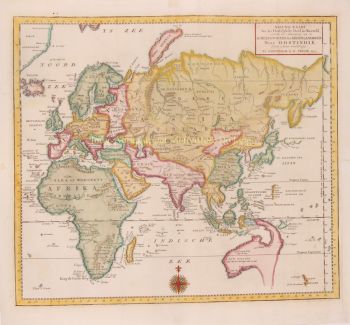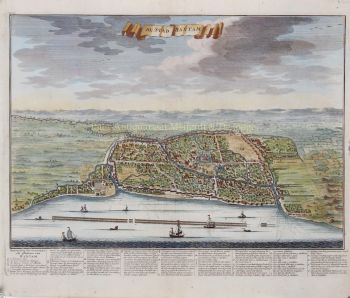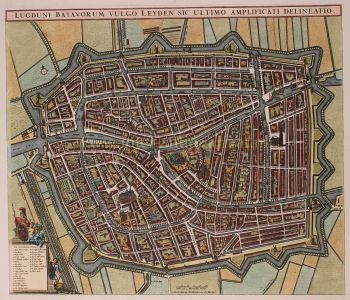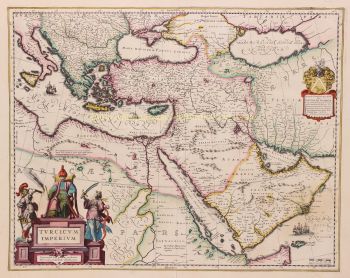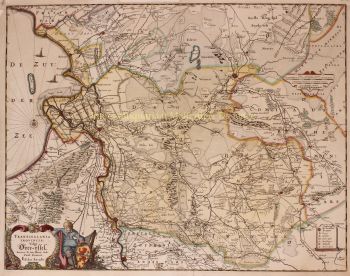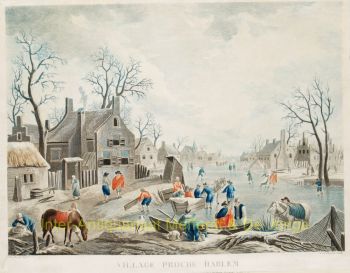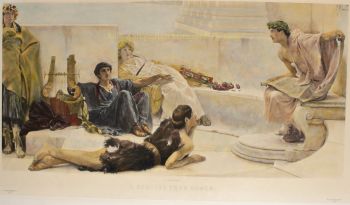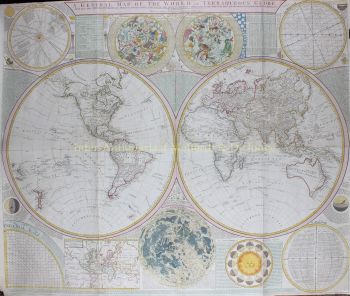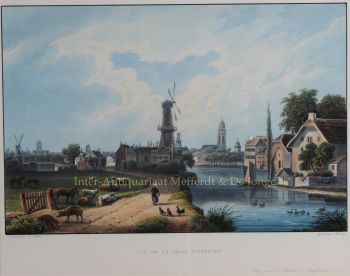French rose 1817 - 1824
Pierre-Joseph Redoute
PapelImpresión
48 ⨯ 32 cm
€ 1.250
Inter-Antiquariaat Mefferdt & De Jonge
- Sobre la obra de arteFROM ONE OF THE MOST BEAUTIFUL BOOKS ABOUT ROSES EVER PUBLISHED "Rosa Gallica Agatha (var. Delphiniana) L’Enfant de France", stipple engraving, partly printed in colour and finished by hand. Made by Langlois after the design by Pierre Joseph Redoute for "Les Roses", printed by Imprimerie Rémond in Paris between 1817-1824. Size (plate): 27 x 21,5 cm (paper: c. 48 x 32,4 cm). Pierre Joseph Redoute (1759 - 1840) was perhaps one of the greatest of all flower artists and was employed by the Empress Josephine, wife of Napoleon Bonaparte as her botanical artist at her estate of Malmaison outside Paris. "Les Roses" is his most celebrated and perhaps the most reproduced of all flower books. In it Redouté figured almost all the important roses of his day in the French Empire. Included were many of the key ancestors of our present-day roses. The plates in Les Roses have artistic value, botanical and documentary value, both for the species and cultivars still surviving and for those that have disappeared. The plates are magnificently and delicately worked, the subtle colouring of the famous French colour printing, which was applied by a rag-stump and re-inked before every impression was an invention of Redoute's so he claimed. In fact he was awarded a medal for it by Louis XVIII. Price: Euro 1.250,-
- Sobre el artista
Redouté es mejor conocido por sus pinturas de flores en el jardín del castillo de Malmaison. Nació en Saint-Hubert, parte del Ducado de Luxemburgo en ese momento, pero ahora ubicado en Bélgica. Fue el artista oficial de la corte de María Antonieta de Austria, para quien pintó plantas del jardín del Kleine Trianon. Continuó pintando durante los turbulentos días de la Revolución Francesa y el Terror. Su cometido era documentar los jardines que se habían convertido en propiedad nacional.
Al servicio de la emperatriz Joséphine de Beauharnais, Redouté pudo dar rienda suelta a su talento en libros con dibujos de flores de todo el mundo y dibujos de las rosas en el jardín de Malmaison. Después de la muerte de Joséphine, pasó por un período difícil. En 1822 entró al servicio del Muséum national d'histoire naturelle. Tres años más tarde se convirtió en Caballero de la Legión de Honor francesa.
Además de ser pintor en la tradición de maestros flamencos y holandeses como Jan Brueghel el Viejo, Rachel Ruysch, Jan van Huysum y Jan Davidsz. de Heem, Redoute también fue importante para la ciencia. Realizó más de 2.100 dibujos de 1.800 especies diferentes de plantas, muchas de las cuales eran desconocidas en ese momento.
Redouté fue alumno de Gerard van Spaendonck, director del Jardin des Plantes de París.
¿Está interesado en comprar esta obra de arte?
Artwork details
Related artworks
- 1 - 1 / 1
Marc Chagall
Adam et Eve Chasses du Paradis Terrestre1952 - 1980
Precio a consultarArthouse Marc Chagall
1 - 4 / 24- 1 - 4 / 24
Artista Desconocido
A large wall map of Asia by Nicolas de Fer 1647 - 1720
Precio a consultarZebregs & Röell - Fine Art - Antiques
1 - 4 / 24- 1 - 4 / 12

